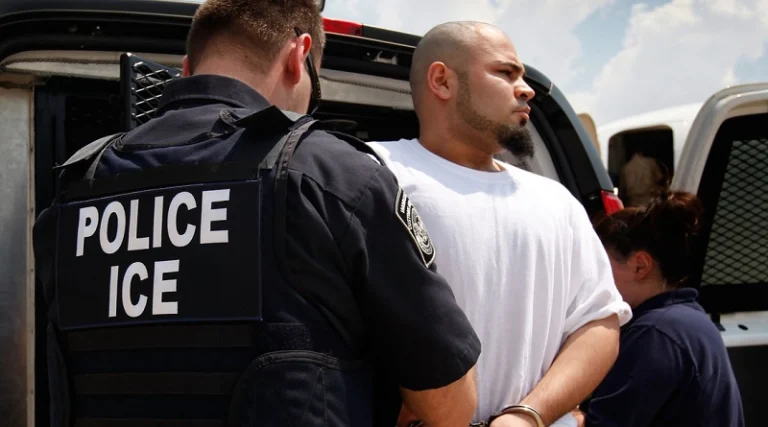Judge Blocks Expedited Deportations of Paroled Migrants Under Trump Directive
A federal judge has temporarily blocked the U.S. government’s use of expedited deportations for migrants paroled into the country, following legal action from advocacy groups challenging the rollback of humanitarian protections.

August 2, 2025 Hour: 5:40 am
A federal court has temporarily blocked the U.S. government’s use of expedited deportation procedures against migrants paroled into the country, following legal challenges filed by immigrant rights organizations.
RELATED:
Trump Vows New Sanctions on Russia Despite Acknowledging Their Futility Amid Rising Global Tensions
On Friday, Judge Jia M. Cobs of the U.S. District Court for the District of Columbia issued an injunction halting the administration’s attempt to summarily remove hundreds of thousands of migrants who had entered the United States legally under parole programs.
The decision responds to a lawsuit brought by the Coalition for Humane Immigrant Rights (CHIRLA), the UndocuBlack Network (UBN), and CASA, challenging what they described as a “deeply flawed” deportation process. Plaintiffs argued that the administration’s actions violate due process protections after dismantling mechanisms introduced under President Joe Biden to manage arrivals at the southern border.
The suit was filed on behalf of migrants admitted under Operation Allies Welcome, created to resettle Afghans, and the CHNV humanitarian parole program, which provided temporary entry for nationals of Cuba, Haiti, Nicaragua, and Venezuela. Both programs required individuals to secure U.S.-based sponsors and comply with specific entry protocols.
Judge Cobs found that the case raised “a question of fairness,” noting that migrants had adhered to the rules in place at the time of entry. She stressed that federal statutes do not permit retroactive policy changes by the executive branch.
In her written opinion, Cobs also criticized the government’s tactics: “Will individuals be summarily expelled from a country—stopped at checkpoints and outside courthouses, often by plainclothes agents without explanation or charges—in ways increasingly resembling the countries they fled?”
The decision halts a key component of the Trump administration’s immigration enforcement efforts. Since returning to office, the administration has moved to sharply increase removals, with internal targets reportedly reaching 800 arrests and deportations per day.
CHIRLA Executive Director Angélica Salas welcomed the ruling, stating that the plaintiffs “did absolutely everything the government asked of them” in order to pursue a lawful path to residency. “They deserve the dignity of a day in court, and this lawsuit seeks to ensure they receive it,” she said.
The legal dispute follows the administration’s March decision to cancel the CHNV program, which had allowed more than 530,000 individuals to live and work in the United States under temporary protections. The Department of Homeland Security defended the cancellation, asserting the program “does not provide a significant public benefit, has not been necessary to reduce illegal immigration levels, does not meet its intended objectives, and is inconsistent with the foreign policy goals” of the administration.
CHNV recipients were given until April 24 to secure alternative legal status or face potential deportation.
Ama Frimpong, legal director at CASA, stated that the court battle is ongoing. “This battle is far from finished,” she said, adding that the organizations will continue to pursue a permanent injunction.
The administration is currently facing two additional lawsuits related to the termination of CHNV. The court’s decision marks a significant judicial check on the executive’s immigration agenda, raising broader questions about due process and the limits of presidential authority. As legal battles continue, the outcome of these cases may define the future of humanitarian parole and migrant protections in the United States.
Author: MK
Source: EFE

